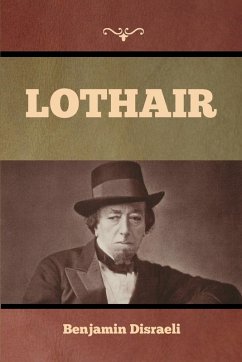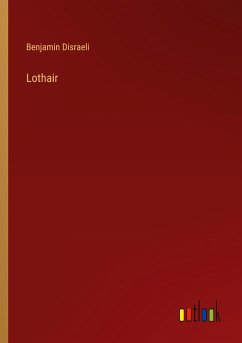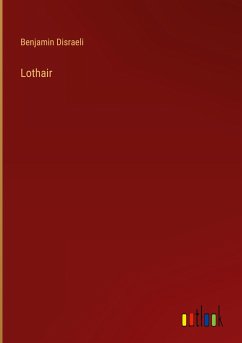Lothair (1870) was a late novel by Benjamin Disraeli, the first he wrote after his first term as Prime Minister. It deals with the comparative merits of the Catholic and Anglican churches as heirs of Judaism, and with the topical question of Italian unification. Though Lothair was a hugely popular work among 19th century readers, it now to some extent lies in the shadow of the same author's Coningsby and Sybil. Lothair reflects anti-Catholicism of the sort that was popular in Britain, and which fueled support for Italian unification ("Risorgimento"). Lothair, a wealthy young orphaned Scottish nobleman (loosely based on The 3rd Marquess of Bute) has been brought up in the legal guardianship of his Presbyterian uncle Lord Culloden and of a Catholic convert, Cardinal Grandison (based on Henry Edward Cardinal Manning). When he comes of age Lothair finds himself the centre of attention of three fascinating women, Lady Corisande, Clare Arundel, and Theodora Campion, representing the Church of England, the Roman Catholic Church, and the Radical cause respectively. Wavering in his allegiances, he unsuccessfully proposes marriage to Lady Corisande, almost joins the Catholic Church, and finally joins Theodora in Italy as a volunteer in the army of Garibaldi, which is fighting to take the Papal States for Italy. Theodora is killed at Viterbo, and Lothair is seriously wounded at the Battle of Mentana, but is nursed back to health by Clare Arundel, who tries to persuade him that he was saved by an apparition of the Virgin Mary. He takes refuge with the bohemian dandy Mr. Phoebus (a thinly disguised Frederic Leighton), who takes him to Syria, which, as the cradle of Christianity, seems the ideal place to reflect on the roots of the Christian faith. In Jerusalem he meets Paraclete, a mystic who teaches him that there is truth in many religions. Lothair returns to England and decides in favour of the Church of England, resisting the attempts of Cardinal Grandison and other prelates, including Mgr Catesby (modelled on Thomas Capel), to convert him to Catholicism. The novel ends with his marriage to Lady Corisande. (wikipedia.org) About the author: Benjamin Disraeli, 1st Earl of Beaconsfield, KG, PC, DL, JP, FRS (21 December 1804 - 19 April 1881) was a British statesman, Conservative politician and writer who twice served as Prime Minister of the United Kingdom. He played a central role in the creation of the modern Conservative Party, defining its policies and its broad outreach. Disraeli is remembered for his influential voice in world affairs, his political battles with the Liberal Party leader William Ewart Gladstone, and his one-nation conservatism or "Tory democracy". He made the Conservatives the party most identified with the British Empire and military action to expand it, both of which were popular among British voters. He is the only British Prime Minister to have been born Jewish. Disraeli was born in Bloomsbury, then a part of Middlesex. His father left Judaism after a dispute at his synagogue; Benjamin became an Anglican at the age of 12. After several unsuccessful attempts, Disraeli entered the House of Commons in 1837. In 1846, Prime Minister Robert Peel split the party over his proposal to repeal the Corn Laws, which involved ending the tariff on imported grain. Disraeli clashed with Peel in the House of Commons, becoming a major figure in the party. When Lord Derby, the party leader, thrice formed governments in the 1850s and 1860s, Disraeli served as Chancellor of the Exchequer and Leader of the House of Commons. ...(wikipedia.org)
Hinweis: Dieser Artikel kann nur an eine deutsche Lieferadresse ausgeliefert werden.
Hinweis: Dieser Artikel kann nur an eine deutsche Lieferadresse ausgeliefert werden.








